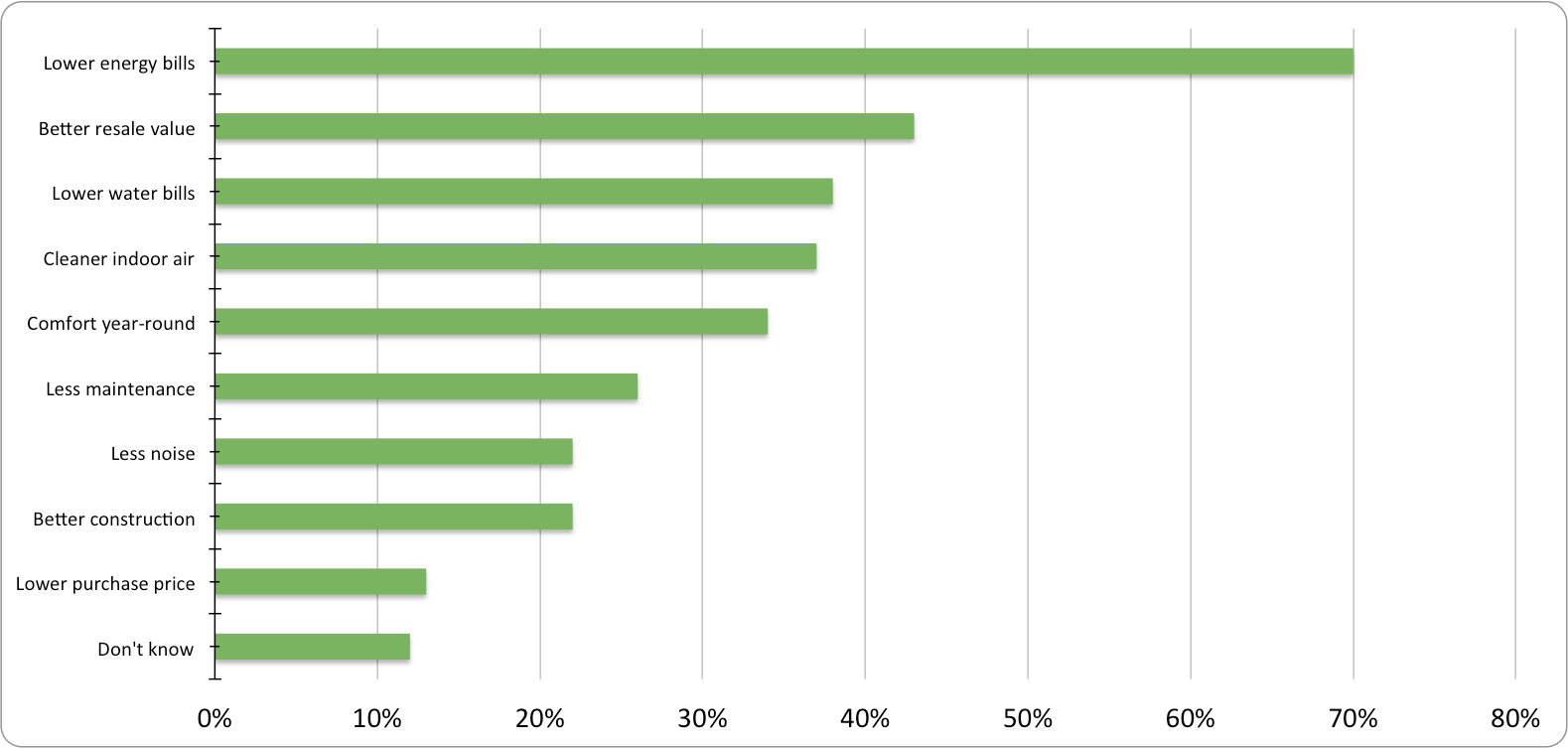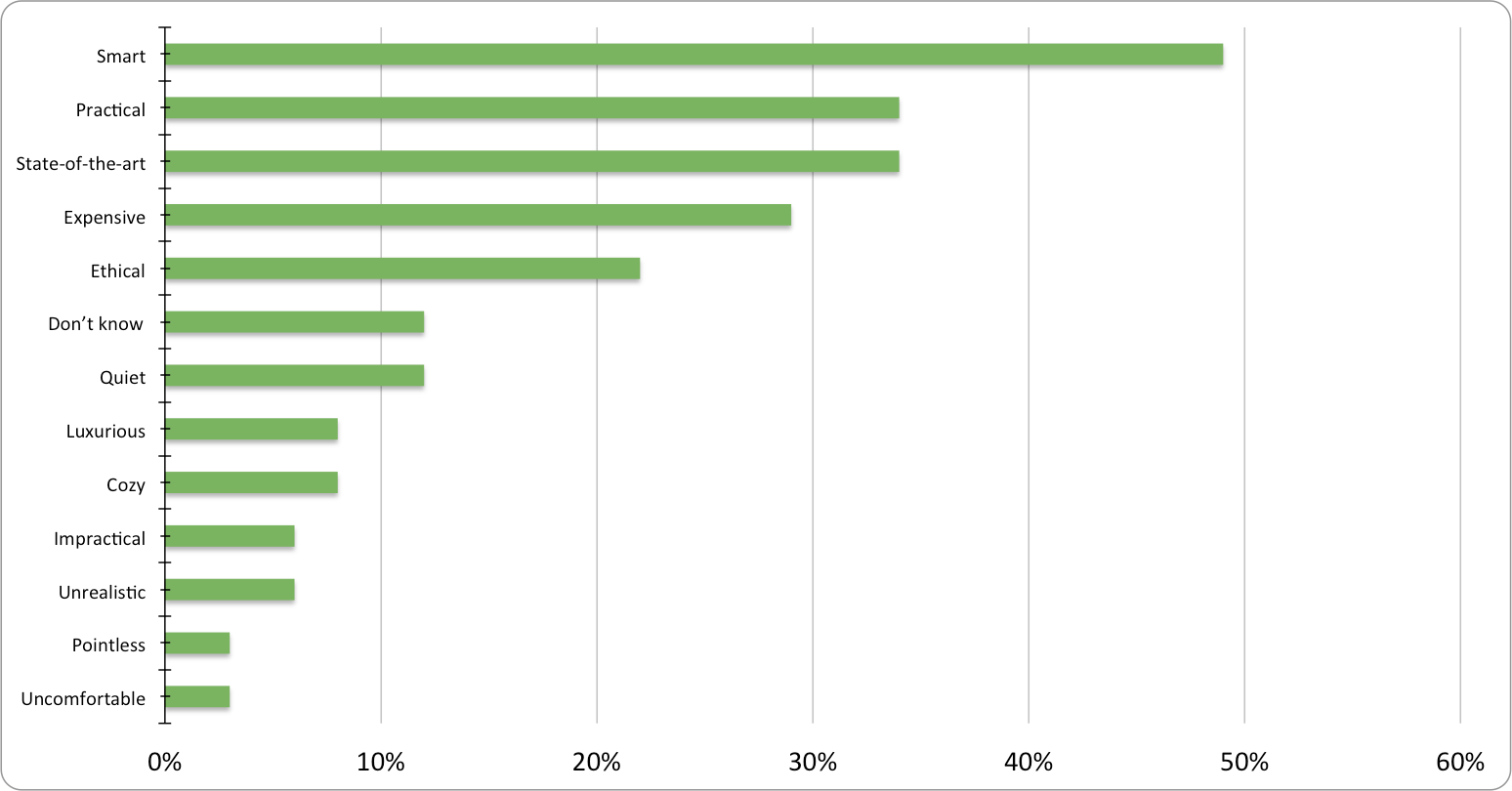By Suzanne Shelton, President and CEO, Shelton Group
Consumer research conducted by the Shelton Group provides valuable do’s and don’ts for marketing zero energy homes. Our 46-page report titled The Buzz on Buzzwords, investigates consumer understanding of key sustainability terms and how they are used in marketing. We took the American pulse when it comes to 11 green buzzwords to find out which ones are powerful and which ones leave them cold.
Net-zero homes – homes that generate as much or more electricity than they use – have not yet reached mass-market status, mostly because they’ve traditionally been too expensive for the average consumer to purchase. But innovative builders are working to bring the cost of these homes down and communicate the financial returns effectively to prospective customers.
They’re likely to hit a speed bump, however, if they rely on the term “net zero.” Only 30% of consumers said they understood what this term meant before they were offered a definition, so it’s unsurprising to us that even fewer thought the term was desirable (24%).
The next question we asked revealed why: consumers really don’t have a clear picture of what makes a net-zero home worth buying. After we measured their initial reactions to the term without context, we gave respondents a definition of a net-zero home (“a net-zero home generates as much, if not more energy than it uses, typically through the use of solar panels and energy-efficient features”) and asked them to identify what they thought the benefits might be.
A net-zero home generates as much, if not more energy than it uses, typically through the use of solar panels and energy-efficient features. Which of the following do you think would be a benefit of owning a net-zero home instead of a standard home?

Although 70% did name “lower energy bills,” it was a bit surprising the number wasn’t even higher, considering that the definition referred to “energy” twice. And beyond that, respondents were stumped. The other options listed are typical of net-zero homes – or are advertised as such in the marketplace – but none received a majority vote. Respondents did at least have a grasp of the expense involved, however, relegating “lower purchase price” to the bottom of the list.
But that doesn’t mean consumers don’t want what builders are selling. Our next question asked them to choose up to three adjectives to describe a net-zero home (after they’d read the definition in the previous question).
Which of these adjectives would you most likely use to describe a net-zero home?

Positive adjectives rose to the top. But notice this: the high-scoring adjectives were pragmatic and didn’t describe the experience of a net-zero home. The positive adjectives that describe a home’s comfort and ambience (quiet, luxurious, cozy) fell further down the list, indicating that consumers are less likely to associate those things with net-zero homes. We think there’s an intriguing opportunity here for manufacturers and builders to connect those dots, especially as our study results show year after year that consumers put a high priority on their comfort.
Several demographic gaps emerged from the data. We looked at gender, age, education, geography and politics.
- Significantly more men than women thought “net zero” was desirable (30% vs. 19%).
- Boomers and Seniors were significantly less impressed with this term than their younger counterparts were: both were less likely than Millennials and Gen Xers to say it was good for their health (21% vs. 29%) and to say it was desirable (20% vs. 28%).
- Respondents with at least a college degree were significantly less likely than those without to pronounce “net zero” undesirable (33% vs. 48%).
- Manufacturers of net-zero homes have their work cut out for them in the heartland. Midwesterners recorded the highest percentage of undesirable responses (51%), representing a significant difference from all other parts of the country (41%).
- 36% of Democrats said they understood this term, compared to just 26% of Republicans and 25% of Independents. Circumstantial evidence suggests they might be right: 58% of Democrats associated “net zero” with being expensive, compared to only 45% of Republicans and 42% of Independents.
The Takeaway
The dismal performance of “net zero” disguises real consumer interest in what these homes have to offer. Your customers will be intrigued if you clearly lay out the benefits – tout lower energy bills, increased comfort, low maintenance and less noise, and you have a real opportunity to show them a product that surpasses their expectations. Instead of “net zero” homes perhaps they should be called “High Comfort” homes.
The Buzz on Buzzwords covers 11 terms commonly used in marketing sustainable products, including green, eco-friendly, sustainable, and VOCs. In addition, you’ll find ideas for addressing specific market segments and general environmental messaging. Shelton Group is a research shop and creative agency specializing in sustainable business. They offer several free reports on their website.

